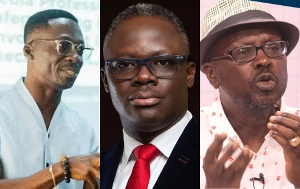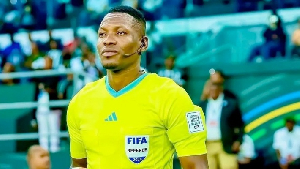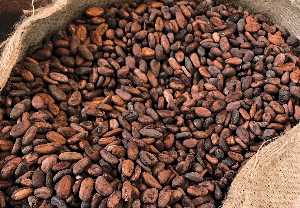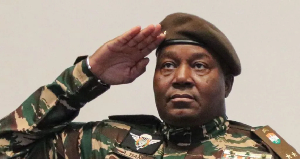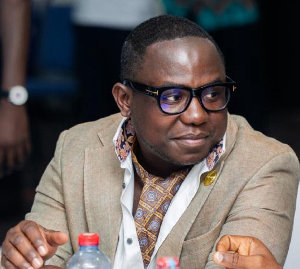Community policing can best be enhanced when members of the public have confidence in the Police.
During his tenure as the Inspector General of Police (IGP), Mr Mohammed Ahmed Alhassan initiated a number of programmes to achieve this, one of them being the public confidence programme. This, in his estimation, could win public confidence.
The Police Band is one of the wings of the Ghana Police Service which brings the law enforcement agency closer to the public.
Members of the public, when they have social activities, can engage them for a fee to perform.
The Police Service in Ghana, being an offshoot of the Gold Coast Constabulary, is operated on similar lines as the Ghana Armed Forces.
It is important to note that the Gold Coast Police was carved out of the Gold Coast Constabulary through the promulgation of the Police Ordinance of 1894.
Genesis
The Central Band, formally known as the Gold Coast Police Band, was formed in the year 1918.
During their leisure times, some of the escort policemen, remnants of the Glover’s Hausas, sang and played their indigenous music and this attracted the attention of the British officers.
Eventually, a number of them were selected and trained to play the western musical instruments.
On March 1, 1930, the band made up of 25 members and the depot staff, and recruits under the command of Captain J.W. Barlow, who was the then Commanding Officer (CO), moved from the Accra main central barracks, which was the then Police Depot, to their present location at Tesano.
The band was under the directorship of the first expatriate bandmaster, B.Y. Marsh, who was appointed in 1923.
They were barefooted, except the bandmaster who was entitled to wear shoes, since he was a colonial master and a General Police Officer.
The band has grown with the Police over the years and today forms an important department of the law enforcement agency.
During the last Republic Day activity at the banquet hall of the State House, many Ghanaians were thrilled with their performance.
DSP Agyeman Bedu, Deputy Director of the Police Band, who led the musicians clad in service uniform, introduced them thus: “Ladies and gentlemen, the Ghana Police Band.”
This was followed by the performance of an assortment of tunes ranging from gospel, highlife, rock, country to jazz by the band.
On the keyboard was Lance Corporal Alfred Amponsah, with Lance Corporal Isaac Appiah on the bass guitar.
Godwin Dunu was on the saxophone, while Lance Corporal Francis Amoah and Andrew Amenya were on the lead guitar and bassoon respectively.
For the percussion, Lance Corporal Kuntum Blankson was the man in charge while Lance Corporal Awood Augustine was the drummer.
The band has musicians like Lance Corporal Comfort Dede and William Womane, with RSM Emmanuel Agbeko as the coordinator.
Close up with the Director of Music
Heading the music department of the Police as director is Superintendent Dr Frank Hukporti, a musician who holds a doctorate in music.
Superintendent Dr Hukporti said the Police Central Band, as it is known, has versatility of style and repertoire and that it is both unique and highly popular whether on parade as a marching band or on the concert platform.
The band plays parade tunes and sings at various occasions or programmes.
The band is a beautiful spectacle to behold on parade when it joins its military counterpart on important national occasions. This is the regimental band of the Police which uses standard classical instruments as does its counterparts in the other security services fashioned along the British lines.
The marching band is immaculate, adding colour to Independence Day celebrations, graduating parades, state funerals and indoor programmes. Its scarlet tunics and gold instruments never fail to impress.
The Concert Band
Whilst marches are naturally the most popular form of military music, the concert band, with its many fine soloists, is capable of almost any style.
The concert band is extremely popular with audiences of all ages and prides itself on the entertaining and varied genres of music it presents whenever it appears on the concert platform.
The Fanfare Team
The Police Band has a Fanfare Team to grace any formal or ceremonial occasion. The Fanfare Team have played on many different occasions including WASSA Games, state visits, sporting occasions, opening ceremonies and personal occasions such as weddings, birthdays and anniversaries.
The band also has a choral group.
Dr Hukporti said their performances at private events can be considered as community policing at its best.
He said their role in society humanises police work, thus bridging the gap between the police and the public.
“Playing music is very therapeutic,” said Dr Hukporti, the music director, who has directed several performances of the band including state performances.
“It’s a way we can give back. Playing music can be healing,” he noted.
Police-Civilian Relations
In contemporary Ghana, the Police Band is a popular band that helps to bridge the gap between the Police Service and civilians through public performances.
For one reason or the other, not many people know the Police Band for the role it plays in society.
The band has over the years spread to all the regions in Ghana except the Northern Region.
Combining Music with Other Policing Duties
Dr Hukporti noted that once a police officer, personnel must always be prepared for other policing activities that they may be assigned to.
A police officer’s duties and responsibilities can vary from day to day. These duties and responsibilities can often range from highly dangerous and highly physical work to paper work or desk tasks. Whatever the assignment may be, a police officer is expected to carry out the commands of his supervisors and to enforce the law.
Selection of Musicians and Training
Personnel go through general police training together with others.
The only difference is that those selected for the band are musicians who know how to play the instruments very well.
“They are professionals in their own field and they love what they do,” Dr Frank Hukporti said.
Foreign Collaborators
The Police Band has over the years hosted their counterparts from Germany and the United States of America.
Recently an eight-member band from the Federal Republic of Germany was in the country to partake in the 3rd Instrumental Workshop and Capacity Building 2015 organised by the Police Central Band.
The German instrumental musicians were led by Stephen Flore, a prominent conductor and expert in horns, who taught his hosts some new things about the instrument.
The two-week workshop, according to Superintendent Dr Frank Hukporti, was a capacity building one.
Centenary Building Project
In September this year the Police Band cut the sod for the construction of a two-storey centenary building to be used as a music school at the Police Depot.
Dr Hukporti said the project is scheduled to be completed in 2018 to commemorate the centenary celebration of the band.
The place will be used as a music centre where people can be trained as musicians.
He urged individuals and corporate organisations to help finance the building project.
Opinions of Saturday, 21 November 2015
Columnist: Linda Tenyah-Ayettey


